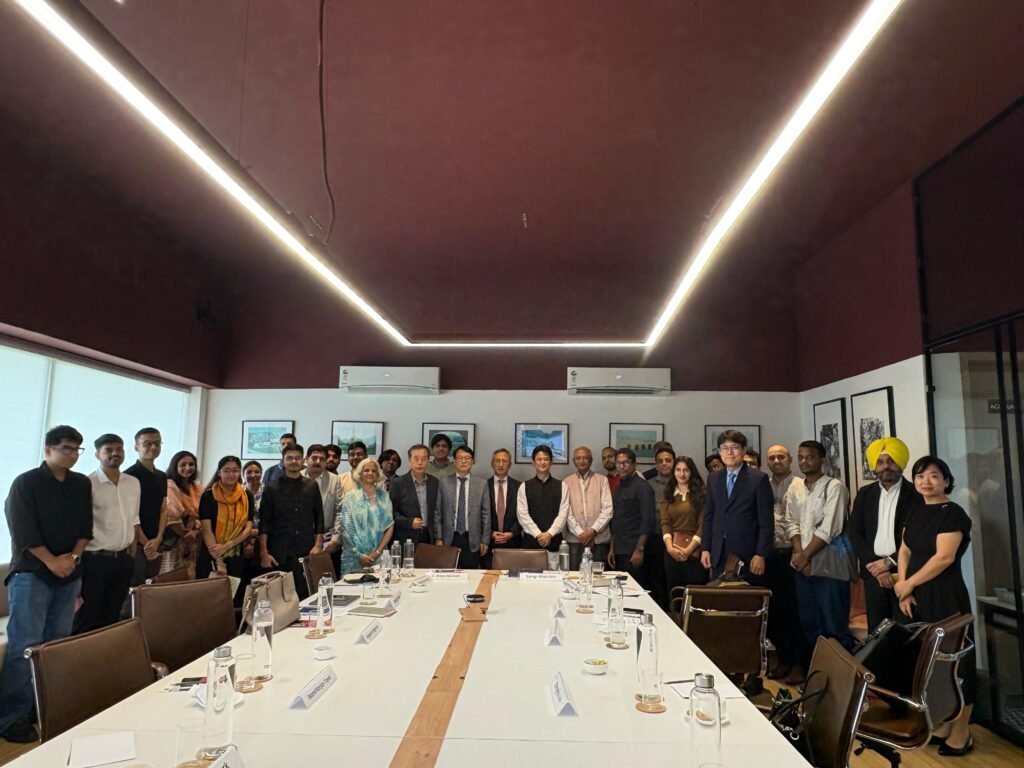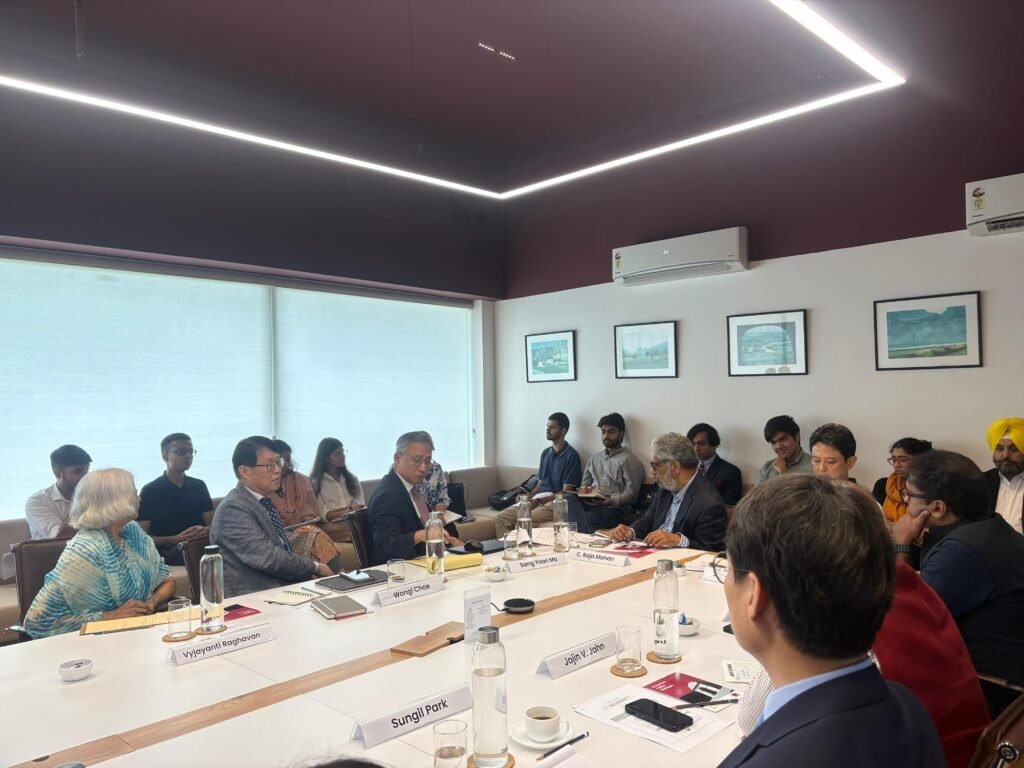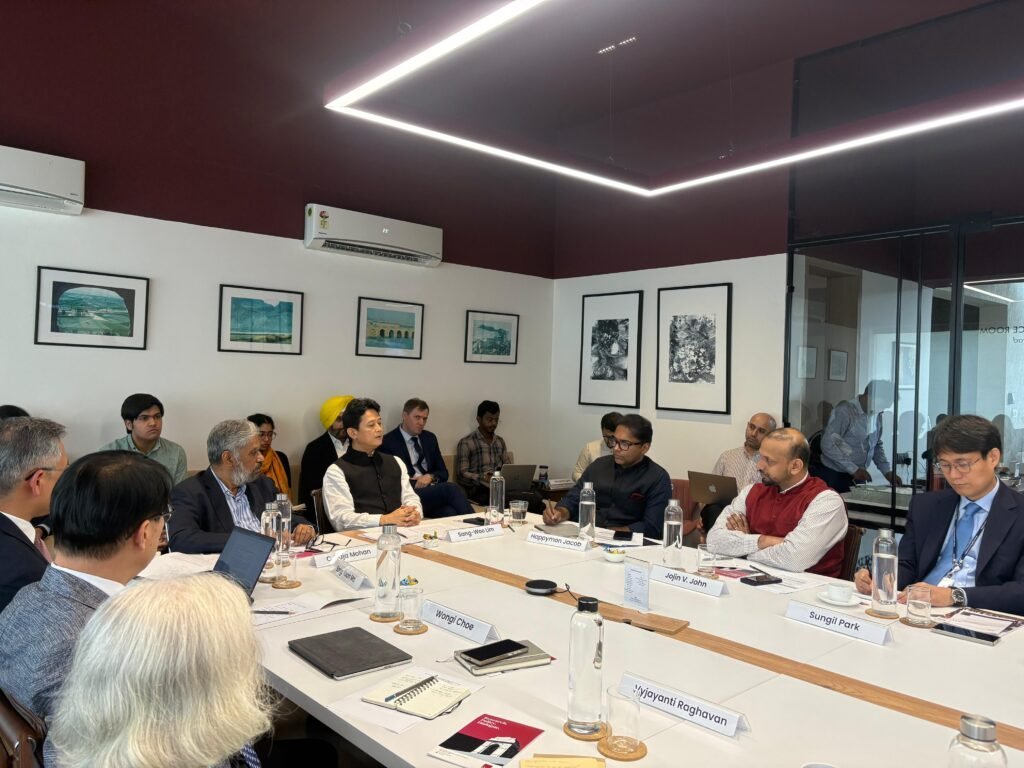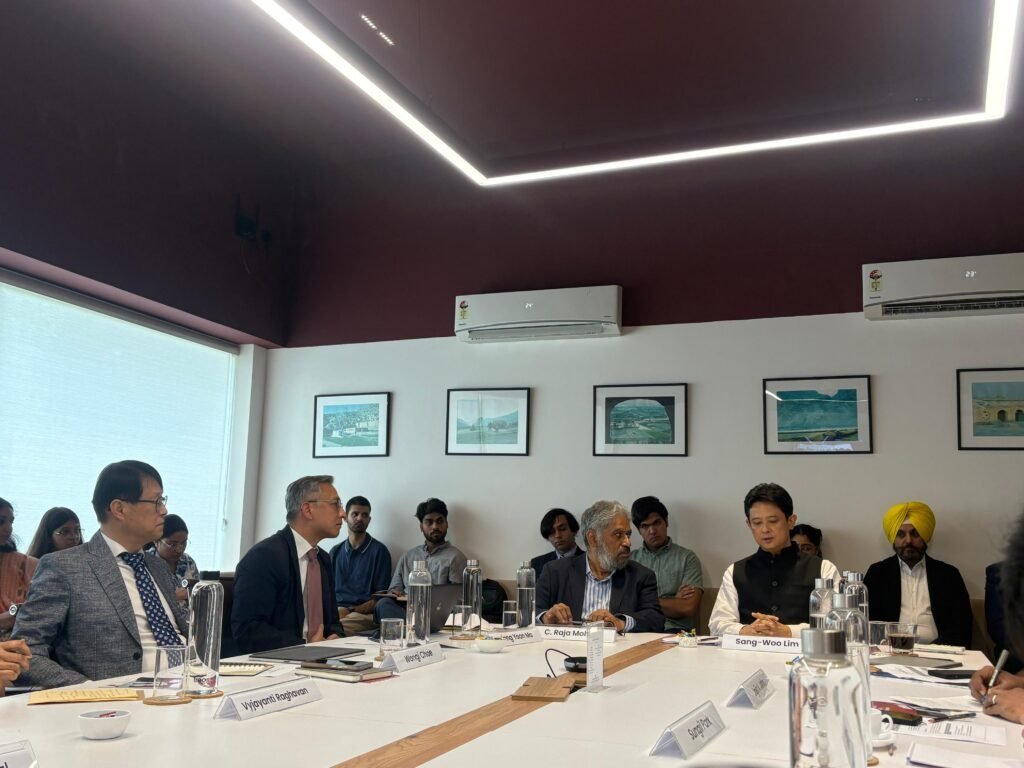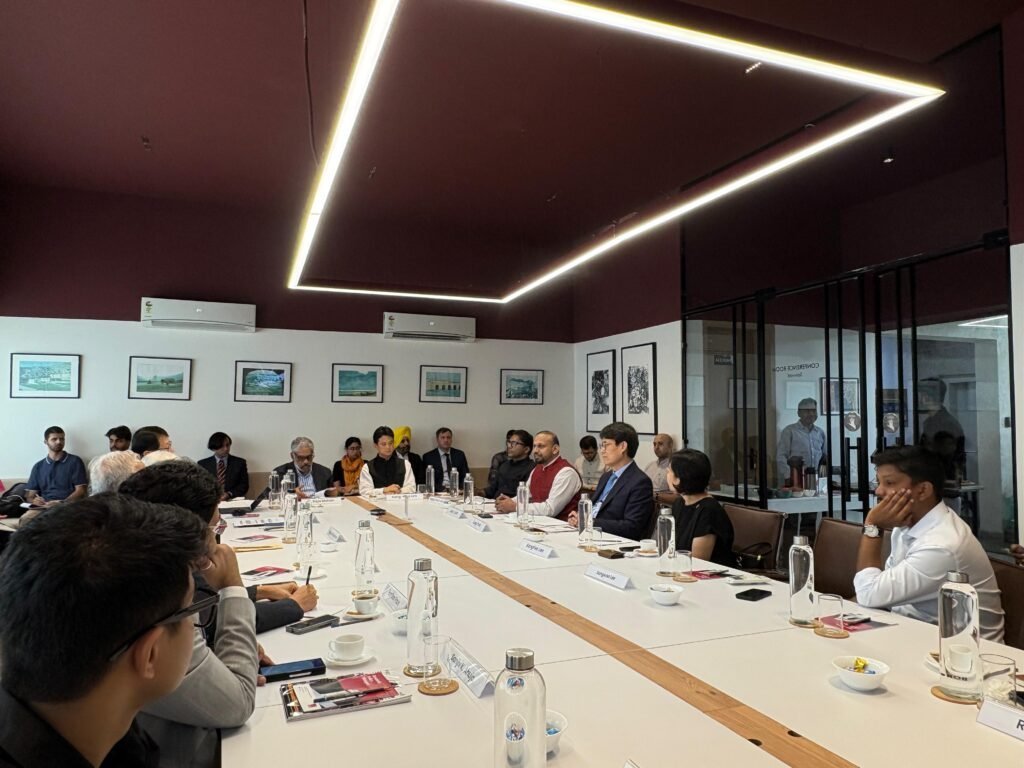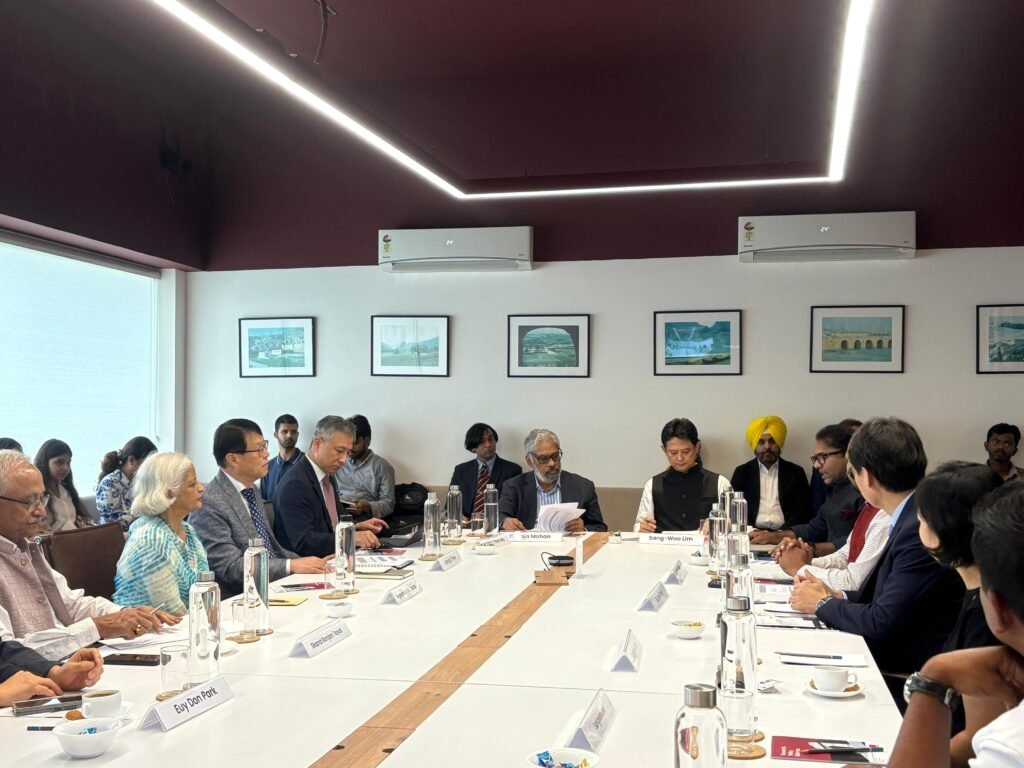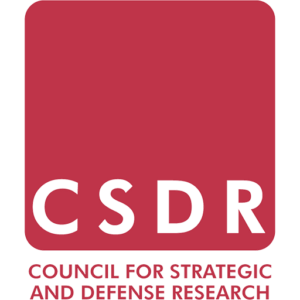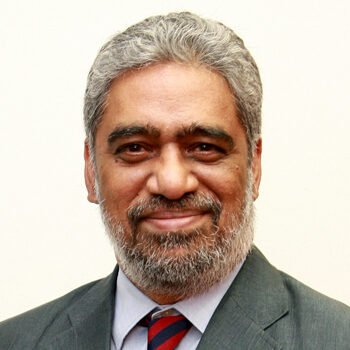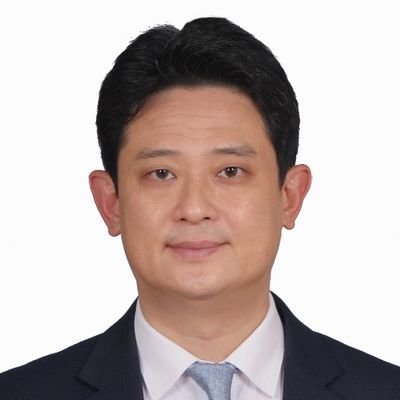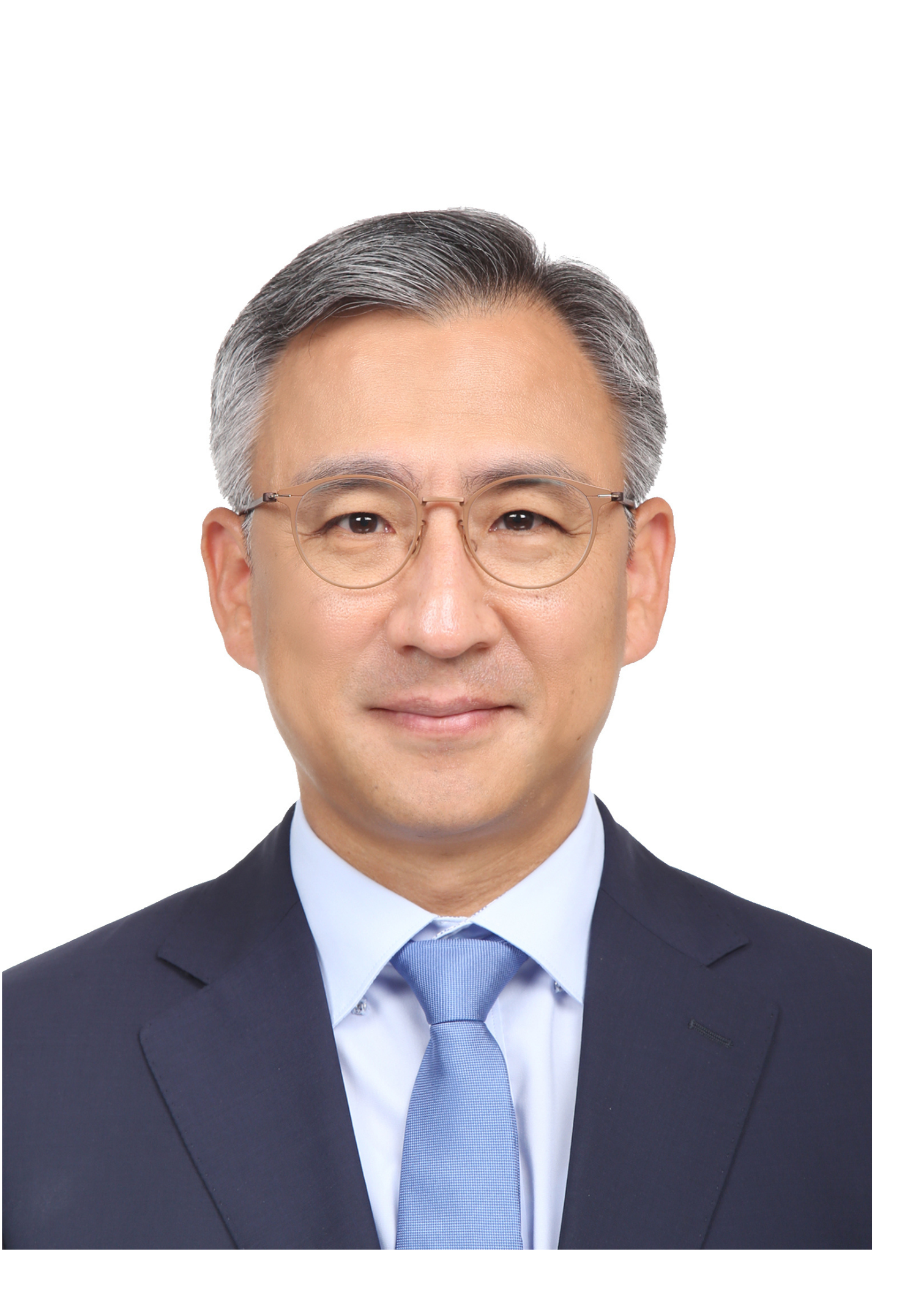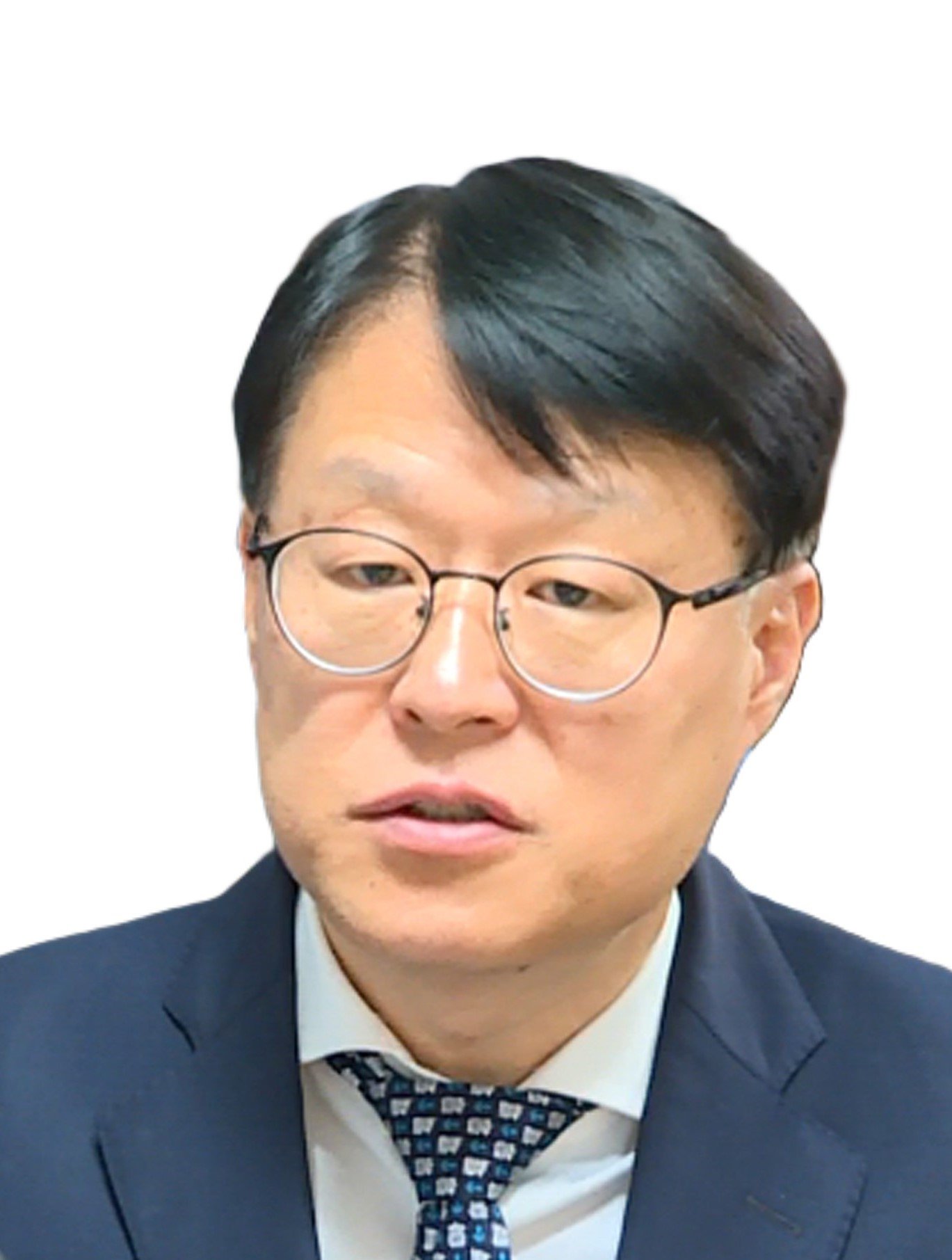August 11, 2025 @ 11:00 am – 12:30 pm
In collaboration with Mahatma Gandhi University (MGU), Kerala, and UniKorea Foundation, we hosted a roundtable discussion, assessing South Korea’s foreign policy under President Lee Jae Myung, who assumed office in June 2025 following months of political upheaval triggered by former President Yoon Suk-yeol’s martial law declaration. Lee’s administration inherits a complex regional landscape marked by the Trump administration’s renewed tariff regime, intensifying U.S.–China strategic competition, and deepening Russia–North Korea ties. His promised “pragmatic” approach seeks to balance the U.S.–South Korea alliance while improving ties with China and Russia—an increasingly delicate act under mounting strategic and economic pressures.
The discussion also explored the implications of these shifts for India–Korea relations. While the Yoon administration strengthened bilateral cooperation in defense, space, and trade, early signals from the Lee administration—such as the appointment of Kim Boo-kyum as special envoy to India and the Cochin Shipyard–KSOE MoU—indicate continued engagement. Against the backdrop of regional flux, the roundtable examined whether emerging uncertainties can spur deeper India–Korea collaboration under the “Special Strategic Partnership,” particularly in defense technology, space cooperation, and economic integration.
Experts
Gallery
